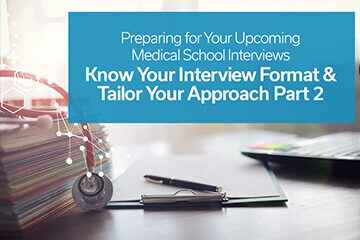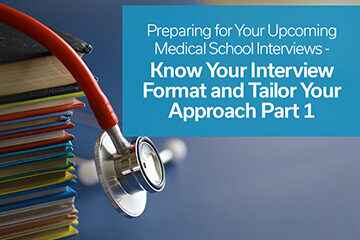Medical school interviews are more than just a formality—they’re often the deciding factor in whether you’ll earn a coveted acceptance letter. You’ve studied hard, built your application, and now comes the moment to bring it all together: the interview.
For many applicants, this day feels overwhelming. The pressure is real—you’re not only showcasing your academic achievements but also your character, communication skills, and ability to thrive as a future physician.
To help you feel confident and prepared, here are 15 practical tips for the day of your medical school interview.
1. Get a Good Night’s Sleep
It’s tempting to stay up late cramming sample questions, but sleep is non-negotiable. A well-rested mind helps you think clearly, respond thoughtfully, and manage stress better. Aim for at least 7–8 hours the night before.
2. Eat a Balanced Meal
Don’t skip breakfast or lunch because of nerves. Choose light, balanced foods that keep your energy steady—like fruit, whole grains, and protein. Avoid anything too heavy or greasy that might slow you down.
3. Dress Professionally and Comfortably
Your appearance makes a first impression before you even speak. Stick to business professional attire: a suit or blazer, polished shoes, and minimal accessories. Make sure you also feel comfortable—you’ll perform better when you’re not distracted by an itchy collar or tight shoes.

4. Arrive Early
Plan to arrive at least 20–30 minutes early to allow for traffic, parking, or unexpected delays. Being on time shows respect and helps you calm your nerves before the interview starts.
5. Bring the Essentials
Pack a small folder with printed copies of your resume, application, or any documents the school requested. Even if they don’t ask for them, having them shows you’re prepared. Bring a notepad and pen too.
6. Practice Confident Body Language
Nonverbal communication matters. Maintain eye contact, sit upright, and offer a firm but friendly handshake. Avoid crossing your arms or fidgeting, as it can signal nervousness or disinterest.

7. Review Your Application Thoroughly
Be ready to discuss any detail from your application: research projects, volunteer work, grades, or personal statements. The interviewers want to see consistency between your written application and your spoken answers.
8. Be Ready for Common Questions
Expect questions like:
- “Why do you want to be a doctor?”
- “What’s your greatest strength or weakness?”
- “Tell me about a time you overcame adversity.”
Having structured answers ready (without sounding scripted) will boost your confidence.
9. Show That You’re More Than Academics
Schools want to see your human side. Share personal stories, leadership experiences, or moments that shaped your passion for medicine. Authenticity is memorable.
10. Listen as Much as You Speak
A strong interview isn’t just about delivering polished answers—it’s also about engaging in a conversation. Listen carefully, don’t interrupt, and respond thoughtfully to follow-up questions.
11. Manage Nerves with Breathing Techniques
Feeling anxious is normal. Use slow, deep breaths before answering questions to calm yourself. A few seconds of pause can make your response clearer and more composed.
12. Be Professional with Everyone You Meet
From the receptionist to fellow applicants, treat everyone with respect. Admissions committees often gather impressions from all staff, not just the interviewers.

13. Ask Insightful Questions
At the end of the interview, you’ll likely be asked if you have questions. Avoid generic ones—prepare thoughtful questions like:
- “How does this school support student wellness?”
- “What mentorship opportunities are available?”
This shows genuine interest and initiative.
14. Handle Mistakes Gracefully
If you stumble on a question, don’t panic. Take a breath, reframe your answer, and keep moving forward. Interviewers understand nerves—they’re assessing how you recover, not just what you say.
15. Follow Up with Gratitude
Always send a polite thank-you email within 24–48 hours. Keep it short but sincere, thanking the interviewer for their time and reaffirming your interest in the school.
Final Thoughts
Your medical school interview is not just about proving you’re academically qualified—it’s about demonstrating that you’re empathetic, resilient, and ready to grow into a future physician. With preparation, self-awareness, and professionalism, you can walk into interview day with confidence.
If you’re looking for personalized coaching, mock interviews, or feedback from real physicians and admissions experts, consider working with MD Consultant Prep. Their team specializes in helping medical school applicants sharpen their skills and present their best selves during the admissions process.
Remember: your story matters. Own it, prepare well, and let your passion for medicine shine through.
Related Reading: Guideline for Medical School Interview Preparation


